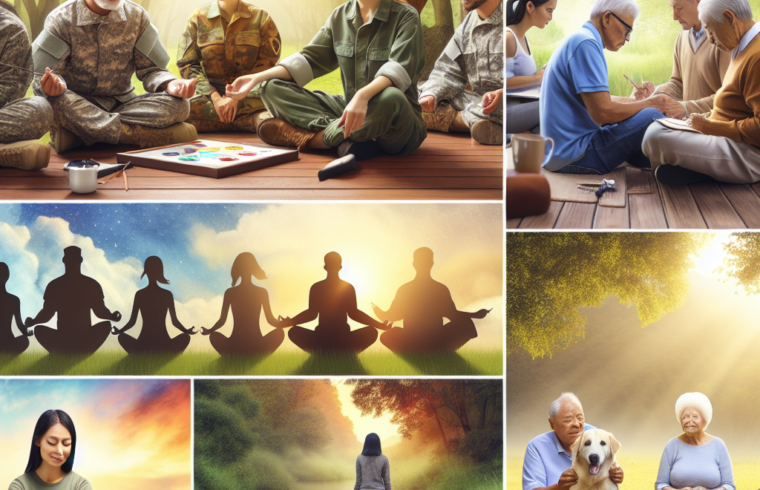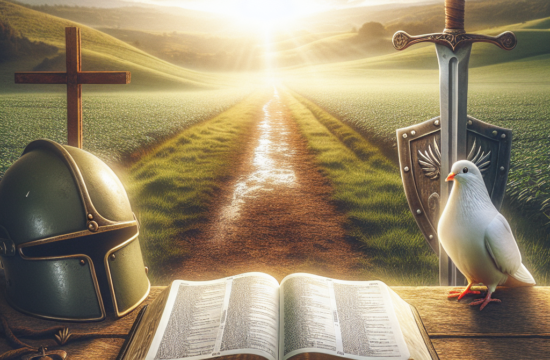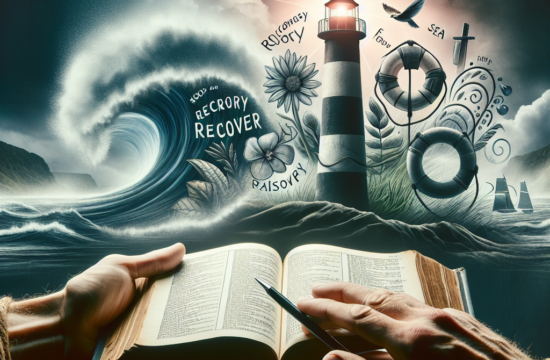Get Started with Recovery! Visit us for more Information and Support
==> Thank you for reading this post! Click Here If you are looking for support and Victory over PTSD.
What Happens at PTSD Retreats for Veterans
- healing through shared experiences
- therapeutic activities and workshops
- supportive community environment
- professional guidance and counseling
Healing Through Shared Experiences
Creating a Sense of Belonging
When I first attended a PTSD retreat, I was a bit nervous. I wasn’t sure what to expect or how I would fit in. But let me tell you, the moment I arrived and saw other veterans, I felt this immediate wave of understanding wash over me. It’s surprising how much easier it is to talk about your struggles when you’re in a room with people who have shared similar experiences. We may all have different stories, but the pain, the loss, and the fight to heal – it connects us in a profound way.
A big part of healing is knowing you’re not alone in your journey. At these retreats, it’s not just about sitting in a circle and sharing. It’s about camaraderie and support. We laughed, we cried, and more importantly, we listened. This honest connection opens the door to healing, and by the end of the retreat, I felt I had a whole new family behind me, rooting for my success.
Additionally, the various group activities fostered the bonds we all cheered on. Whether it was cooking together, hiking, or simply chilling at the fire pit, it all contributed to a sense of belonging that many of us desperately needed.
Sharing Stories as a Healing Tool
There’s something incredibly therapeutic about storytelling. Having veterans sit around and share their stories, their truth, is like a weight being lifted. Each narrative holds a lesson, a piece of wisdom, or a moment of raw emotion that others can learn from. When I shared my PTSD story, I could feel the tension in the room—those nods of understanding made me feel like I was heard for perhaps the first time in a long while.
This storytelling isn’t just cathartic for the speaker; it resonates with everyone listening. A fellow veteran recounted his experience during deployment and how it shaped his perspective, and I realized how interconnected our experiences truly are. It highlighted the notion that we can learn from one another, and in doing so, we can find strength in shared vulnerabilities.
Furthermore, these shared experiences often pave the way for deeper conversations about coping strategies and healing approaches, enriching the collective knowledge of the group. That exchange of insights is something I genuinely found invaluable.
Building Lasting Friendships
One of the most unexpected outcomes of attending the retreat was the lasting friendships I formed. You go in looking for healing—maybe a half-hearted belief that you’ll find some peace—and by the end, you walk away with a buddy who understands your battles. Social media became our lifeline afterward; we check in on each other regularly, and it’s heartwarming to know I have a support system beyond the retreat.
These friendships provide an ongoing encouragement that keeps the healing process alive. It’s easy to fall into old habits when you’re alone, but having someone to share your journey with changes everything. We often text or call each other when the shadows loom, which helps keep the darkness at bay.
It’s astonishing how these relationships, born from hardship, can evolve into a supportive network. We share victories over small milestones and remind each other that each step, no matter how small, is still progress.
Therapeutic Activities and Workshops
Diverse Healing Practices
At the retreats, I was introduced to various therapeutic practices that aided the healing process. From yoga and meditation to art therapy and nature walks, each activity uniquely contributed to my healing. Yoga, for instance, was something I had never tried, but it surprised me how the combination of physical movement, breath, and mindfulness could bring such relief.
Every morning, I’d join the group for a yoga session, and honestly, it became something I looked forward to. Each stretch and pose felt like a gentle reminder to release the tension built up from my past experiences. It was a cathartic release I hadn’t anticipated, and I found deeper connections with fellow participants as we struggled through the poses together.
Art therapy was another powerful experience. I’m no artist by any means, but putting my feelings into a painting allowed for expression that words sometimes couldn’t convey. Creating art in a group setting fostered a supportive environment where everyone was free to explore their emotions in a safe space.
Workshops Focused on Skill-Building
The workshops were also quite enlightening. We engaged in skills training that ranged from coping strategies to mindfulness techniques. A particularly memorable workshop focused on identifying triggers and developing plans for managing anxiety. It equipped me with practical tools I could use in everyday life, which was empowering.
This wasn’t about just talking about issues—it was about finding tangible solutions to the problems we faced. Each workshop provided handouts and materials that I still keep handy as reminders of the lessons learned.
Participating in these workshops allowed us to gather together, share insights, and brainstorm solutions. This collaborative approach nurtured a sense of teamwork and encouraged us to look towards healing as a group effort.
Connecting With Nature
One of the most refreshing aspects of these retreats is how they immersed us in nature. I had forgotten how grounding nature can be. We spent time hiking, fishing, or simply sitting by a serene lake. This connection to the natural world provided a reprieve from our everyday struggles.
I’ll never forget one serene afternoon by the lake. As we fished and shared stories, I realized I was able to let go of some lingering guilt and pain. The murmuring water felt like a soothing balm on my weary soul, a reminder that nature holds healing energy.
Nature walks were another special experience. They encouraged mindfulness and reflection while also helping stress levels diminish. It’s amazing what being outdoors can do for your mental state, and being surrounded by a group of fellow veterans made it even better.
Supportive Community Environment
Safe Spaces for Vulnerability
One of the first things I noticed upon arriving was the laid-back atmosphere. There’s a certain kind of magic that happens when you create a safe space for vulnerability. It made opening up much more manageable. I realized that this wasn’t a place of judgment—everyone understood where I was coming from.
This safe environment allowed me to speak my truth without fear of reaction. It got super emotional at times, but those tears were cathartic, reflecting all the bottled-up experiences I needed to release. Someone would always reach out with a hand on my shoulder or a comforting nod that affirmed, “You’re not alone in this.”
Building trust among peers took time, but the inclusive environment made it happen quickly. I felt empowered to share my experience, which in turn encouraged others to do the same, creating a ripple effect of honesty.
Mentorship and Peer Support
Having veterans who have been through similar experiences not only created immediate camaraderie but also laid the groundwork for mentorship. We were paired with “veteran mentors” who had already walked the path we were on. This guidance helped me tailor my healing process.
I still recall the wisdom shared by one mentor who had transformed his own struggles into advocacy work. His story inspired me to consider how I might channel my experiences purposefully. Being able to learn from someone who’d integrated their past into a life of service was invaluable.
It’s about exchanging knowledge and being able to lean on each other when the going gets tough. The mentors became a lighthouse, guiding us through stormy seas, showing us the way ahead, armed with firsthand experience.
Creating a Network for Long-Term Support
The retreat wasn’t just a one-off experience for me; it was the start of a network of support that continues today. By fostering this community-focused environment, we can maintain connections that keep the healing process alive long after the retreat ends.
We came together during our time, but we’ve kept the lines of communication open, creating group chats and social media groups. This has turned into a lifeline whenever we struggle or need a friendly voice.
I often feel like I can turn to these folks at odd hours when memories flood or panic sets in. It’s a comfort to have that camaraderie and support—knowing I have a community that’s got my back.
Professional Guidance and Counseling
Access to Qualified Professionals
What I really appreciated about the retreat was the access to licensed therapists and counselors. These professionals specialized in trauma and were there to provide guidance, insights, and strategies for handling PTSD.
I had a couple of one-on-one sessions with a therapist who was patient, understanding, and skilled at creating a welcoming space for folks like me to share our experiences. Her compassion made the difference when it came to addressing my issues and formulating a plan for recovery.
The professionals also led group sessions where we discussed coping mechanisms, and it felt like a huge relief to share my thoughts with someone experienced. It made a world of difference to have guidance instead of trying to navigate the path alone.
Accessing trained professionals removed the stigma I had in seeking help. Seeing therapists who specialized in veterans’ needs fostered an understanding that made it feel like we were truly speaking the same language.
Individualized Treatment Plans
What set these retreats apart was the focus on creating individualized treatment plans tailored to our needs. After thorough assessments, the professionals sought to understand each participant’s unique struggles and crafted plans that felt personal and relevant.
I felt like I was collaborating on my healing journey instead of receiving a one-size-fits-all approach. This vastly increased my engagement and motivation to pursue the suggested coping mechanisms.
Being able to work with a therapist who understood my situation deeply made me feel supported and less isolated. Many of these plans included follow-up consultations to check in and adjust our goals, ensuring we stayed on track even after returning to our daily lives.
Emphasis on Communication and Feedback
Lastly, the emphasis on open communication and feedback between participants and counselors allowed for an adaptable approach to tackling PTSD. Regular check-ins meant we could express what worked or didn’t work, which also buoyed the sense of community.
I loved how the retreat environment encouraged dialogue. Each time feedback was sought, it cultivated an atmosphere where everyone felt their voice mattered. This built trust, knowing that our input was shaping the continued progress of the retreat experience.
Having that level of interaction empowered us to take ownership of our healing process, which naturally led to a more significant commitment to the strategies the professionals suggested. I really felt like I had a say in my journey.
FAQs
What can I expect from a PTSD retreat for veterans?
You can expect a supportive environment focused on healing through shared experiences and professional guidance. The activities typically include therapeutic sessions, workshops, and outdoor activities that aim to promote connection and mental well-being.
How are the activities at the retreat structured?
Activities are usually structured around the needs of the group and can range from individual counseling sessions to group therapy and various therapeutic workshops. You’ll likely experience a mix of structured activities and free time for personal reflection.
What if I feel uncomfortable sharing my story?
It’s completely okay to feel reluctant to share—many veterans feel the same way. The environment is designed to be safe and supportive, and sharing is not mandatory. You can always participate in discussions without divulging personal details at your own comfort level.
Will I have access to professionals during the retreat?
Absolutely! Professional counselors and therapists are usually available for one-on-one sessions, group therapy, and workshops aimed at addressing PTSD and providing coping strategies. They’re there to help you navigate your healing journey effectively.












